· With Mass in Saint Peter’s Square the Pope concludes the Extraordinary Jubilee ·
The Extraordinary Jubilee Year of Mercy solemnly concluded with the image of Pope Francis closing the heavy doors of the Vatican Basilica on Sunday morning, 20 November. However, the Pontiff emphasized that “the true door of mercy which is the heart of Christ always remains open wide for us”, as he celebrated in St Peter’s Square the Mass for the Solemnity of Our Lord Jesus Christ, King of the Universe.
In his homily, the Pope spoke of the kingship of Jesus which culminates on the Cross, and he cautioned against seeking out “the comforts and certainties offered by the world”. How often, the Pope stated, “are we tempted to come down from the Cross. The lure of power and success seem an easy, quick way to spread the Gospel; we soon forget how the Kingdom of God works”. Yet on the contrary, “this Year of Mercy invites us to rediscover the core, to return to what is essential”. Indeed, it “calls us to look to the true face of our King, the one that shines out at Easter, and to rediscover the youthful, beautiful face of the Church, the face that is radiant when it is welcoming, free, faithful, poor in means but rich in love, on mission”.
Turning then to the good thief who appears in the scene of the Passion, the Pope pointed out that God is “ready to completely and forever cancel our sin, because his memory — unlike our own — does not record evil that has been done or keep score of injustices experienced”. Therefore we must “ask for the grace of never closing the doors of reconciliation and pardon”.
At the end of Mass, the Pontiff signed the Apostolic Letter Misericordia et Misera (Mercy with Misery), addressed to the entire Church so as to continue living the mercy experienced during the Jubilee.
HOMILY OF THE HOLY FATHER
The Solemnity of Our Lord Jesus Christ King of the Universe crown the liturgical year and this Holy Year of mercy. The Gospel presents the kingship of Jesus at the height of his saving work, and does it in a surprising way. “The Christ of God, the Chosen One, the King” ( Lk 23,35.37) appears no power and no glory is on the cross, which looks more like a loser than a winner. His kingship is paradoxical: his throne is the cross; his crown of thorns; He does not have a scepter, but is placed a rod in his hand; He does not lead lavish dresses, but is deprived of his tunic; She has shiny rings on his fingers, but his hands pierced by the nails; It does not possess a treasure, but it is sold for thirty coins.
Really Jesus’ kingdom is not of this world (cf. Jn 18:36); but just in it, says the Apostle Paul in the second reading, we find redemption and forgiveness (cf. Col 1,13-14). Because the greatness of his kingdom is not the power according to the world, but God’s love, a love capable of reaching and restore all things. For this love Christ humbled himself even to us, lived our human misery, has tried our meanest condition: injustice, betrayal, abandonment; He has experienced death, the grave, the underworld. In this way our King even went up to the universe boundaries to embrace and save all living. He has condemned us, has not even won us over, he never violated our freedom, but has made its way with the humble love that bears all things, hopes all things, endures all things (cf. 1 Cor 13.7). Only this love won and continues to win our great adversaries: sin, death, fear.
Today, dear brothers and sisters, we proclaim this singular victory, with which Jesus has become the King of the ages, the Lord of history: with the only omnipotence, that is the nature of God, his own life, and that will never end (cf. 1 Cor 13.8). With joy we share the beauty of having as our King Jesus: his lordship of love transforms sin into grace, death in resurrection, fear into confidence.
But it would be a small thing to believe that Jesus is King of the universe and the center of the story, without making it become the Lord of our lives: everything is in vain if we do not welcome him personally and if not we also welcome his way of ruling. They help us in this the characters that today’s Gospel presents. In addition to Jesus, three figures appear: the people watching, the group that is in the vicinity of the cross and a crucifix evildoer alongside Jesus.
First of all, the people, the Gospel says, “was to see” ( Lk 23,35): no one says a word, no one comes close. The people are far away, watching what happens. It’s the same people who for their own needs crowded around Jesus, and now keeps his distance. Faced with the circumstances of life or our unfulfilled expectations, we too can be tempted to distance themselves from the royalty of Jesus, not to accept the way the scandal of his humble love, which worries our selves, that uncomfortable. He prefers to stay at the window, stand apart rather than closer and be next. But the holy people, who has Jesus as King, is called to follow his way of concrete love; to wonder, each one every day: “What asks me the love, where I push? I give answer to Jesus with my life? “
There is a second group, which includes several characters: the heads of the people, the soldiers, and a criminal. All these mock Jesus. The turning the same provocation “save himself” (cf. Lk 23,35.37.39) is a worse temptation to that of the people. Here try Jesus, as did the devil at the beginning of the Gospel (cf. Lk 4,1-13), because it renounces to reign in God’s way, but do it according to the logic of the world descend from the cross and defeat the enemies! If it is God’s power and demonstrated superiority! This temptation is a direct attack on love: “save yourself ” (vv. 37.39); not the others, but yourself. I prevail with his strength, by his own glory, with his success. It is the most terrible temptation, the first and last pages of the Gospel. But faced with this attack on their way of being, Jesus does not speak, does not react. Does not defend himself, he does not try to convince, no apologetics of his kingship. Rather continues to love, forgive, lives the time of the test according to the will of the Father, sure that love will bear fruit.
To accommodate the kingship of Jesus, we are called to fight against this temptation, to fix our gaze upon the Crucified, for diventargli increasingly loyal. How many times however, even among us, you have sought the safety offered by the rewarding world. How many times we were tempted to come down from the cross. The force of attraction of power and success seemed like a quick and easy way to spread the Gospel, forgetting in a hurry as the work of God’s kingdom. This Year’s mercy invited us to rediscover the center, back to the essentials. This time of mercy calls us to look at the true face of our King, the one that shines in the Passover, and to rediscover the young and beautiful face of the Church, which shines when it is warm, clear, faithful, poor in means and rich in love, missionary. Mercy, bringing us to the heart of the Gospel, it also urges them to give up the habits and customs that can impede service to the kingdom of God; find our orientation only in the perennial and humble kingship of Jesus, not adapting to the precarious kingship and to the changing powers of each era.
In the Gospel appears another character, closer to Jesus, the evildoer who prays saying: “Jesus, remember me when you come into your kingdom” (v. 42). This person, simply looking at Jesus, he believed in his kingdom. And it is not closed in on itself, but with his mistakes, his sins and his trouble they turned to Jesus. He asked to be remembered and tried God’s mercy: “Today will be with me in Paradise” (v . 43). God, just give him a chance, remember us. He is ready to completely and forever erase sin, because his memory is not recording the harm done and do not always take account of wrongs, such as ours. God has no memory of sin, but of us, each of us, his beloved children. He believes that you can always start over, get up.
We ask ourselves the gift of this open memory alive. We ask for the grace never to close the doors of reconciliation and forgiveness, but to know how to get past the hurt and divergences, opening every possible avenue of hope. As God believe in ourselves, infinitely beyond our merits, we too are called to give hope and to give opportunities to others. Because, even if you close the Holy Door, he remains wide open for us the true door of mercy, which is the Heart of Christ. From the pierced side of the Risen arise until the end of time mercy, consolation and hope.
Many pilgrims have crossed the holy doors and out the roar of the chronicles have tasted the great goodness of the Lord. Thank you for this and remember that we are invested in mercy to clothe yourselves with compassion, for we, too, become instruments of mercy. We continue our journey together. We accompany the Madonna, she was near the cross, she gave birth to us there as a tender Mother of the Church that all want to gather under her mantle. She beneath the cross saw the good thief receive forgiveness and took the disciple of Jesus as her son. She is the Mother of mercy, to which we rely on: our every situation, every our prayer addressed to his merciful eyes, will not remain unanswered.


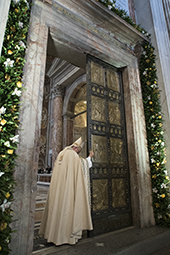
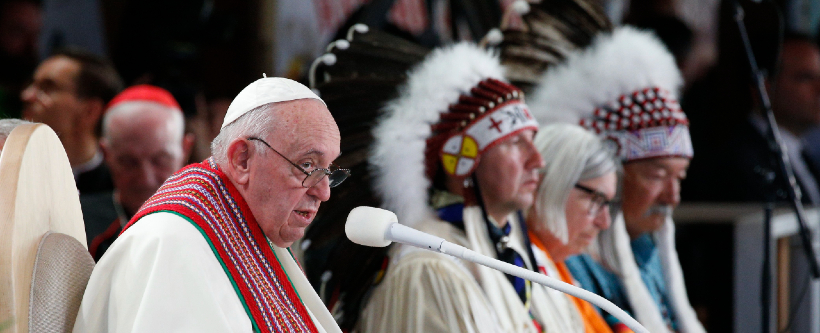
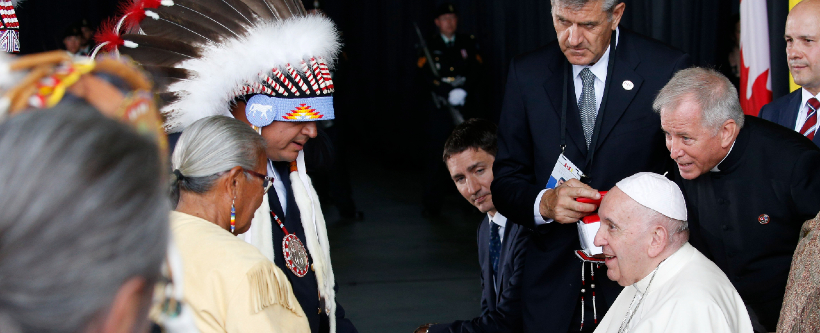
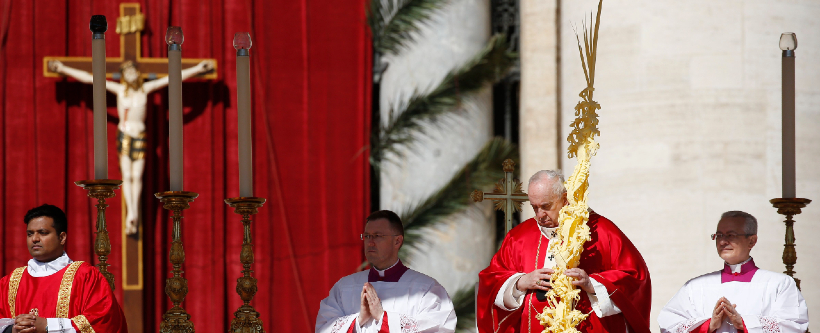

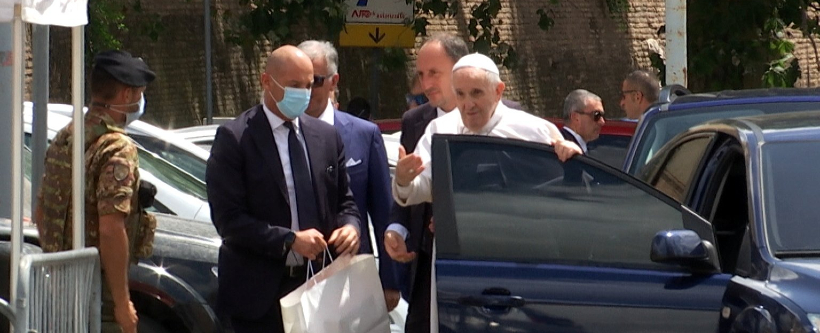
Facebook Comments